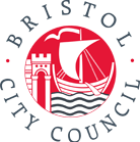REACH collaborative hub leading urgent and emergency care research celebrates its first year
- 9th November 2021
The Research in Emergency Care, Avon Collaborative Hub (REACH) is a multidisciplinary collaboration across the University of the West of England (UWE) and the University of Bristol (UoB), supported by Bristol Health Partners, commissioners and service providers in the south west region.
On 18 October 2021, REACH celebrated a year since launch with a ‘Showcase and Future Focus’ event. Held online, it was attended by over 70 academics, clinicians, commissioners and members of the public from across Bristol and the surrounding areas.
The event opened with a keynote address from Professor Daniel Lasserson, sharing the latest research on his work to provide acute care outside of the hospital setting to help ameliorate increasing pressures and rising inpatient bed occupancy. Professors Sarah Purdy (UoB) and Jonathan Benger (UWE), the co-directors of REACH, then chaired an afternoon in two parts; first a showcase of REACH’s research and then a consultation discussion with attendees. In part one, members of the REACH team presented their own studies covering a broad spectrum of pre-hospital care, urgent primary care and the Emergency Department.
Some feedback from attendees:
“REACH is such an important and timely partnership”
“Great event and great speakers”
Watch keynote and showcase sessions
Keynote address
Daniel Lasserson, Professor of Acute Ambulatory Care, University of Warwick: Hospital at Home (time stamp 0.00)
Pre-hospital care
Dr Laura Goodwin, Senior Research Fellow, UWE: Temperature measurement of babies born in the pre-hospital setting: paramedic experiences and an analysis of local patient care records (time stamp 26:19)
Kim Kirby, Paramedic and final year PhD student, UWE: Improving the ambulance recognition and response for patients who are at Imminent risk of cardiac arrest (time stamp 38:39)
Urgent primary care
Dr Matthew Booker, NIHR Academic Clinical Lecturer In Primary Care, UoB: Remote advice to pre-hospital practitioners (REMAPP) (time stamp 51:19)
Dr Hannah Stott, Research Fellow, UWE: Realist evaluation of a paramedics working in general practice: an assessment of clinical and costs effectiveness (READY) (time stamp 1:04:24)
Emergency Department
Prof. Edd Carlton, ED Consultant, NIHR Advanced Fellow at UoB, and Royal College of Emergency Medicine Professor: Conservative Management of Traumatic pneumothorax: A complex trial to answer an important question (CoMiTTed) (time stamp 1:18:13)
Dr Sarah Blakey, Trainee in Paediatric Emergency Medicine: Retrospective observational study of neonatal attendances to a Children’s Emergency Department (time stamp 1:30:53)
Priority setting
In part two, attendees were split into groups to discuss the key question: What areas should REACH prioritise over the next 1, 3 and 5 years? This question provoked thoughtful and informed discussions, leading to many pertinent suggestions both during and following the event. Suggested topics from attendees included:
- the boundaries of what an emergency department can do and how to ensure it does not become the ‘path of least resistance’
- mental health: the impact of waiting for assessments, reasons for frequent use of the ED and exploring the transition between child and adult services
- Ambulance Care Assistants: a skills analysis
- trauma informed care for patients with personality disorder/PTSD, to find how best to provide care and considering an evaluation of existing tools
- the crucial need to involve patients and public contributors in order to help address health inequalities through research.
REACH’s Steering Group will now consider all contributions before setting out a prioritisation plan for the coming years. A similar consultation event will be held annually to continue to seek input into where and how REACH should focus its research.






